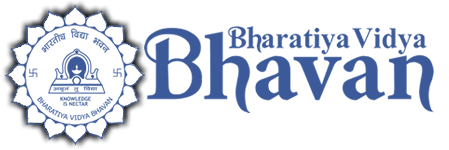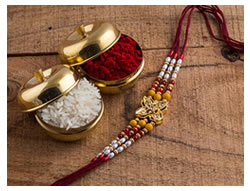
My Account | Online Catalogue | Contact Us
Munshi Saraswati Mandir Granthagar
(THE BHAVAN'S LIBRARY)
Category
- ONLINE QUIZ
- BOOK DISPLAYS
- May 2023: Mumbai - Story of the 7 Islands
- June 2022: Series (Multi-Volume) Publications
- December 2020: Children's Classics
- October 2020: Indian Regional Classics (Part 3)
- September 2020: Indian Regional Classics (Part 2)
- August 2020: Indian Regional Classics (Part 1)
- June 2020: Sanskrit Classics
- April 2020: World Classics
- January 2020: New Additions 2019 – English
- January 2020: New Additions 2019 – Gujarati
- January 2020: New Additions 2019 – Hin, Mar, San
- January 2020: New Additions 2019
- December 2019: Gita Jayanti
- September 2019: Teachers' Day
- August 2019: Independence Day
- October 2018: Gandhiana
- September 2018: Gujarati Popular Literature
- August 2018: Parsiana (Zoroastrian) Collection
- July 2018: Makers of Modern India
- June 2018: World Classics in English
- May 2018: Reference Works
- April 2018: Jnanpith and Sahitya Academy Winners & Publications
- March 2018: Eminent Women of India
- February 2018: Ramakrishna Movement
- January 2018: Best of Indian English Literature
- December 2017: Making of the Constitution of India
- November 2017: Chacha, Children and Priyadarshini
- October 2017: Gandhian Collection
- FEATURED BOOKS
- ઘનશ્યામ દેસાઈ (૧૯૩૪ – ૨૦૧૦) / Ghanshyam Desai (1934-2010)
- ધીરુબહેન પટેલના પુસ્તકો
- Books by Amitav Ghosh
- Books by Amartya Sen
- डान् क्विक्षोटः Don Quixote
- Children’s Classics
- Regional Classics (Part 3) - Translations
- Regional Classics (Part 2) – Translations
- Regional Classics (Part 1) – Translations
- Sanskrit Classics – Editions and Translations
- World Classics – New Editions
- The Bhagavad Gita with Eleven Commentaries
- PERSONALITIES
- DATES & EVENTS
- ARTICLES
- FESTIVALS OF INDIA
- DRAWINGS & PAINTINGS
Library Blog
Contributions like articles, book reviews, book abstracts, etc. are welcome from Library Members, Bhavan’s staff, and friends and supporters of the Library.
Festivals of India: Raksha Bandhan
by Smt. Anjali Ambekar

The Shravana month carries all hues and shades of nature and emotions. Religiously speaking Shravan is a pious month and full moon day (Purnima) of this all-important month is considered to be a very holy day. Shravan Purnima is celebrated in different ways for different reasons almost throughout the country. For the siblings it is the eternal tie of love (Raksha Bandhan), for Brahmins the day to take the pledge of Brahmanik rites (Shravani/ Upakramam) and for those who depend sea and monsoon, it is the beginning of the new season (Narali Purnima).
Rakhsha Bhandhan (The Thread of Love)
"Raksha" means protection, "bandhan" means bound or binding.
Rakhi in India is one of the most important festival and is celebrated with faith and enthusiasm. Rakhi festival in India is essentially celebrated between brothers and sisters and intends to strengthen the eternal bond of love share by them. Raksha Bandhan, the festival to celebrate the immaculate love between brothers and sisters
Rakhi is celebrated all over India and amongst all sections of Hindu society. Rakhi celebrations are however more prominent in North India.
Legends of Rakhi
Number of legends are associated with the ancient festival of Raksha Bandhan.
Yama and the Yamuna
It is said that the Raksha Bandhan was a ritual followed by Lord Yama (the Lord of Death) and his sister Yamuna. Yamuna tied rakhi to Yama and bestowed immortality. Yama was so moved by the serenity of the occasion that he declared that whoever gets a rakhi tied from his sister and promised her protection will become immortal.
In the Epics
Raksha Bandhan finds a mention in Mahabharata when Lord Krishna advised Yudhishthir to perform the ceremony to protect himself and the army from the dangers of the war. It is said that Kunti, the mother of the Pandavas tied rakhi to her grandson Abhimanyu and Draupadi to lord Krishna.
Rakhi Customs and Tradition
As per the traditions, the sister on this day prepares the Rakhi Puja Thali consisting of Rakhi, Tika, Mithai, Diya besides other traditional puja items to carry out the ceremony. At the opportune time she ties Rakhi on her brother's wrist, apply tika on his forehead and perform arti of him. Praying for her brother's long life sister puts a sweet in brothers mouth. Brother reciprocates by presenting Rakhi Return Gifts to sister and promises to guard her against all hardships in life. This simple Rakhi ceremony symbolizes and strengthens the eternal bond of love between a brother and sister.
Regional Significance of Rakhi
Auspicious day of Rakhi Purnima is celebrated all over India though under different names and with different set of rituals. In North India, the festival is popularly celebrated as Raksha Bandhan. On this day sisters tie a sacred thread of Rakhi on brother's wrist and pray for his long life. Brothers' bless their sister and present them gifts. Regional names of Rakhi in rest of India include Rakhi Purnima, Raksha Bandhan, kajari Purnima, Avani Avittam and Balev. Read on to know more about these.
Avani Avittam:
Rakhi is called Avani Avittam in South India. This is the time of "upakarmam" and is celebrated in various ways all over South India. It falls on the full-moon day of the month of Shravan (August-September). Rakhi forms an
important Hindu festival in South India.
Balev:
Rakhi is also commonly known known Balev. This festival has special significance among Brahmins as it is the day on which Brahmins change their sacred thread. On Shravan Sud 15 when the moon is in the constellation of Shravan the Brahmins, while changing their sacred thread, rededicate themselves to study the vedas and pursue spiritual upliftment.
Raksha Bandhan Today:
The passing of time and the concept of globalization have influenced the festivals and the ways of celebrating it. Today tying of Rakhi is not confined to the siblings alone. The concept has been widened and Rakhi is tied to anybody whom a girl wants to be a sister of. Nowadays, Raksha Bandhan day is also a day for some of the girls to visit the orphanages or prisons to tie Rakhi to the inmates of the orphanage and jails. This is a total humanitarian approach. This kind act gives the fated Rakhi brothers a feeling of hope that there are people who love and care for them too.
Narali Purnima
Narali Purnima or Coconut Day (The term Narali has been derived from the word 'Naral', which means coconut. Purnima is the Marathi term for full moon day.) festival is celebrated each year with loats of fun by the people of Maharashtra namely the fishermen on the full moon day in the month of Shravan. The fishermen who have an endless love for the ocean offer coconuts to the sea-god Varuna who protects them from the wrath of the seas. The festival arrives at the fag end of the monsoons and the fisherman’s offering of the coconuts symbolizes the end of the monsoons and also the end of their troubles. It marks the beginning of the new fishing season. They please the gods before venturing out in the waters in their decorated boats. They pray to the sea-god that he may protect them from all the dangers and allow them to sail safely.
After the ritual is over, they set out in the sea, in their beautifully decorated boats. After a short trip, they come back to the shore and the rest of the day is spent in the celebrations (that include singing and dancing). The special dish of the day is, of course, made from coconut and is a sweet rice preparation.
(The Coconut as “Prasad” :The coconut is a fruit full of symbolism. It is known as “Shriphal”, or “divine fruit”. Within its hard shell it contains food and drink, the two essential elements God has placed in creation for man’s nourishment. The hard shell expresses God’s desire that man should enjoy the fruits of the earth through personal effort.The effort needed to break the shell represents the element of sacrifice. The kernel and the water are first offered to God and then shared with all those present, and also taken home to be shared with relatives and neighbours as “prasad”, or food blessed by God.)
Shravani/ Upakramam
If on the full moon day of this month, the lunar asterism ‘Shravan’ is present, then the Vedic ritual called ‘Shravani’ is performed on this day. Shravani is a ritual in which one resumes leaning and teaching after a long vacation.
It is also called ‘Upakarma’, ‘Upakaran’, etc. Upakrama means the beginning. On this day the Yajurvedis begin to read Yajur Veda for next six months. The day is auspicious because as per Indian mythology Lord Vishnu was incarnated as Lord Hayagriva, the lord of knowledge, the one who restored the Vedas to Brahma.
Rituals
On this day, a Mahasankalpam is taken for atonement of all our sins in the past year. The Brahmins take a holy dip and wear a new holy thread called Yajnopavit or Janeyu.
The first step is a 'prayashchita', a prayer to atone the sins. It says, "For the removal of all my sins and thereby to secure a divine blessing and for qualifing myself to perform the essential duties of Brahmanas as prescribed in the vedas and smritis and adopted by the really good in their conduct I put on this Yagnopavita".
When the thread is worn another mantra is recited which means -"I put on the sacred thread which is highly pure, is inseparable from God, is capable of prolonging life and is the foremost in the accomplishment of a Brahmana. May such pure Yagnopavita bring strength and dignity. While removing the old thread, the mantra means -"I throw away the broken dirty old thread, may the new one bring on long life and Brahmana's brilliance.
It is most commonly celebrated in southern states of Tamil Nadu and Kerala, and states of Orissa and Maharashtra.